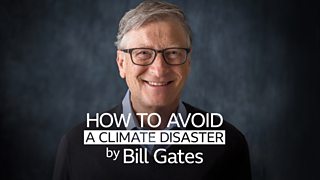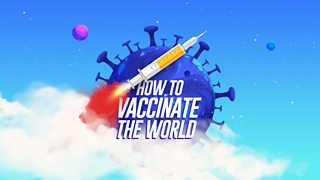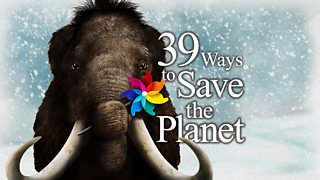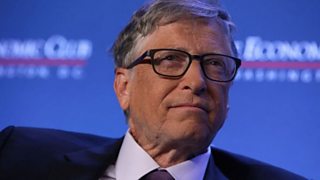Bill Gates: Seven things we learned from his book on climate change
Bill Gates wants to save the planet. In his book How to Avoid a Climate Disaster, read for Radio 4 by William Hope, the iconic tech entrepreneur and philanthropist shares his ideas on how we can get to zero greenhouse gas emissions in time to avoid a catastrophe.
Below are some of the key moments from the book...
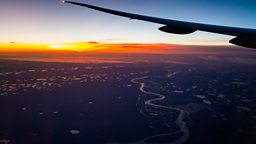
1. Bill's environmentalism started when he looked out of a plane window
I would fly into major cities, look out the window, and think 鈥榳hy is it so dark out there?'Bill Gates
Gates came to environmentalism through his work visiting low-income countries on behalf of the Bill & Melinda Gates Foundation. “I would fly into major cities, look out the window, and think ‘why is it so dark out there? Where are all the lights I’d see if this was New York, Paris or Beijing?’” Gates soon realised the quandary the planet faced, acknowledging that “the world needs to provide more energy so that the poorest can thrive, but we need to provide that energy without releasing any more greenhouse gases.”
2. He's optimistic about our future
Gates remains extremely upbeat about meeting this enormous challenge, acknowledging that “we already have some of the tools we need” and that what he’s learned about climate and technology makes him “optimistic” we can invent the ones we don’t. However, Gates is also pragmatic. He knows that “it’s not an option to simply stop making things.” Some of the technologies that can help us out are not ready or are expensive. However, Gates is direct about one course of action: “We can simply use less stuff.”
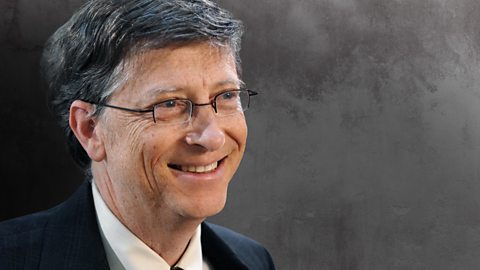
Bill Gates: "Cheeseburgers run in my family."
William Hope reads from How to Avoid a Climate Disaster by Bill Gates, on 大象传媒 Radio 4.
3. He's cut back on cheeseburgers
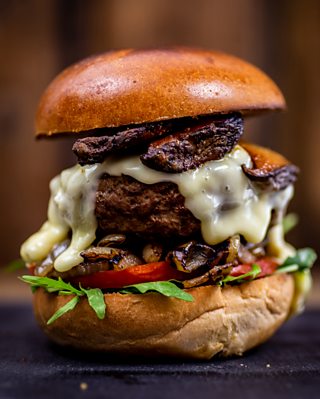
“Cheeseburgers run in my family,” says Gates. From his dad treating him and his boy scout troupe to burgers after a hike, to his Microsoft days when he would eat at the nearby Burgermaster, one of Seattle’s oldest burger chains, Gates admits that he still loves a good cheeseburger, but adds: “I don’t eat them nearly as often as I used to because of what I've learnt about the impact that beef and other meats have on climate change.”
Among the shocking things that Gates has learned is that emissions – i.e. burps and farts – from livestock include methane and nitrous oxide, both of which, per molecule, cause many, many times more warming than carbon dioxide.
4. He thinks we waste too much food
Methane is also a by-product of rotting food. In Europe, industrialised parts of Asia and sub-Saharan Africa, more than 20% of food is allowed to rot, in the United States, it's 40%. “That's bad for people who don't have enough to eat, bad for the economy and bad for the climate,” says Gates, adding that “when wasted food rots it produces enough methane to cause as much warming as 3.3 billion tons of carbon dioxide each year.”
5. He says the poor are hit harder by climate change
Gates contrasts the experience of smallholder farms, like one he visited in Kenya, that are contributing little to overall greenhouse gas emissions and the growth of cities that means “building over flood plains, forests and wetlands that could absorb rising waters during a storm or hold reservoirs of water during a drought.
“The cruel injustice is that even though the world's poor are doing essentially nothing to cause climate change, they're going to suffer the most from it,” Gates says.
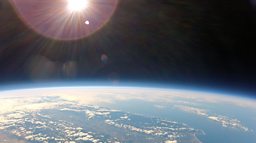
6. He thinks governments aren't doing enough
Despite the Paris Agreement showing that governments can work together, there’s so much more for them to do, Gates believes. However, they are often reluctant to spend taxpayers’ money on projects with no immediate return. Gates wants governments to see investment into research and development as an “opportunity to make scientific breakthroughs that will give birth to new industries, creating jobs and reducing emissions at the same time.”
The public's interest in climate change has grown much more than I thought it would.Bill Gates
7. He feels the climate debate has become too polarised
“I'm glad to say that the public's interest in climate change has grown much more than I thought it would,” says Gates. “Unfortunately, the conversation about climate change has become unnecessarily polarised, not to mention clouded by conflicting information and confusing stories, we need to make the debate more thoughtful and constructive.
“If we keep our eye on the big goal getting to zero and we make serious plans to achieve that goal, we can avoid a disaster. We can keep the climate bearable for everyone, help hundreds of millions of poor people make the most of their lives and preserve the planet for generations to come.”
To hear more from Bill Gates's book, listen to How to Avoid a Climate Disaster, on 大象传媒 Radio 4.
More from Radio 4
-
![]()
How to Avoid a Climate Disaster by Bill Gates
Bill Gates sets out a far-reaching plan for how the world can avoid a climate catastrophe.
-
![]()
How to Vaccinate the World: Bill Gates
Tim Harford reports on the global race to vaccinate the world against Covid-19.
-
![]()
39 Ways to Save the Planet
39 brilliant ideas to relieve the stress that climate change is exerting on the planet.
-
![]()
Bill Gates: Solving Covid easy compared with climate
Solving climate change would be "the most amazing thing humanity has ever done".
